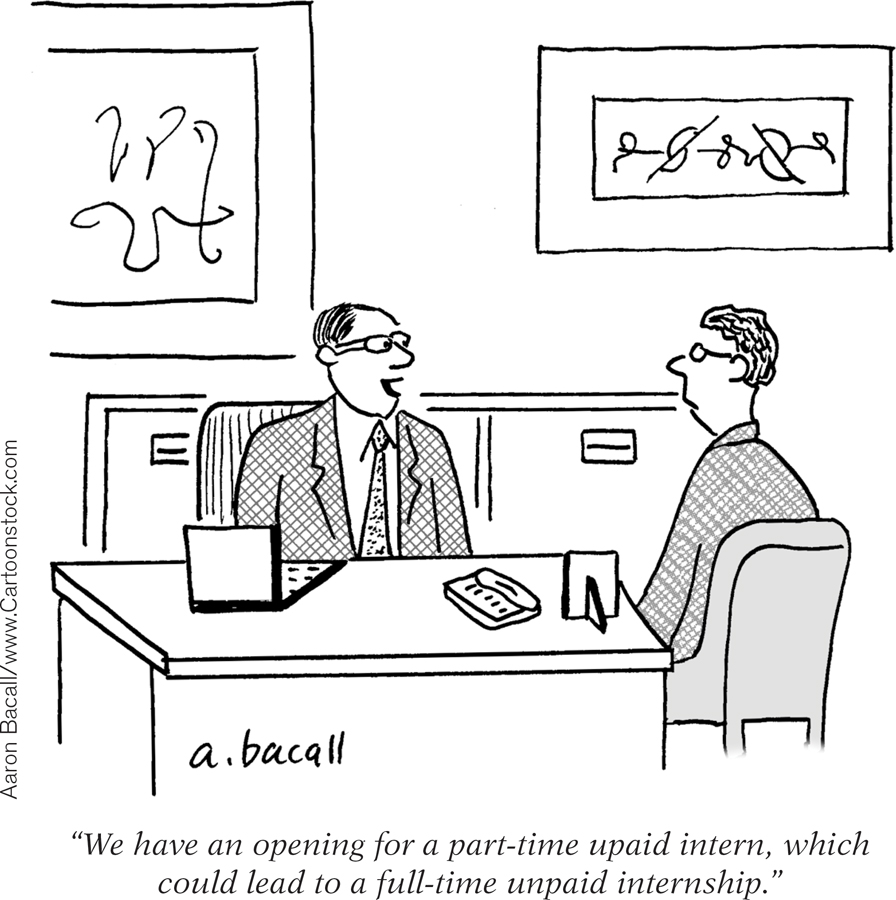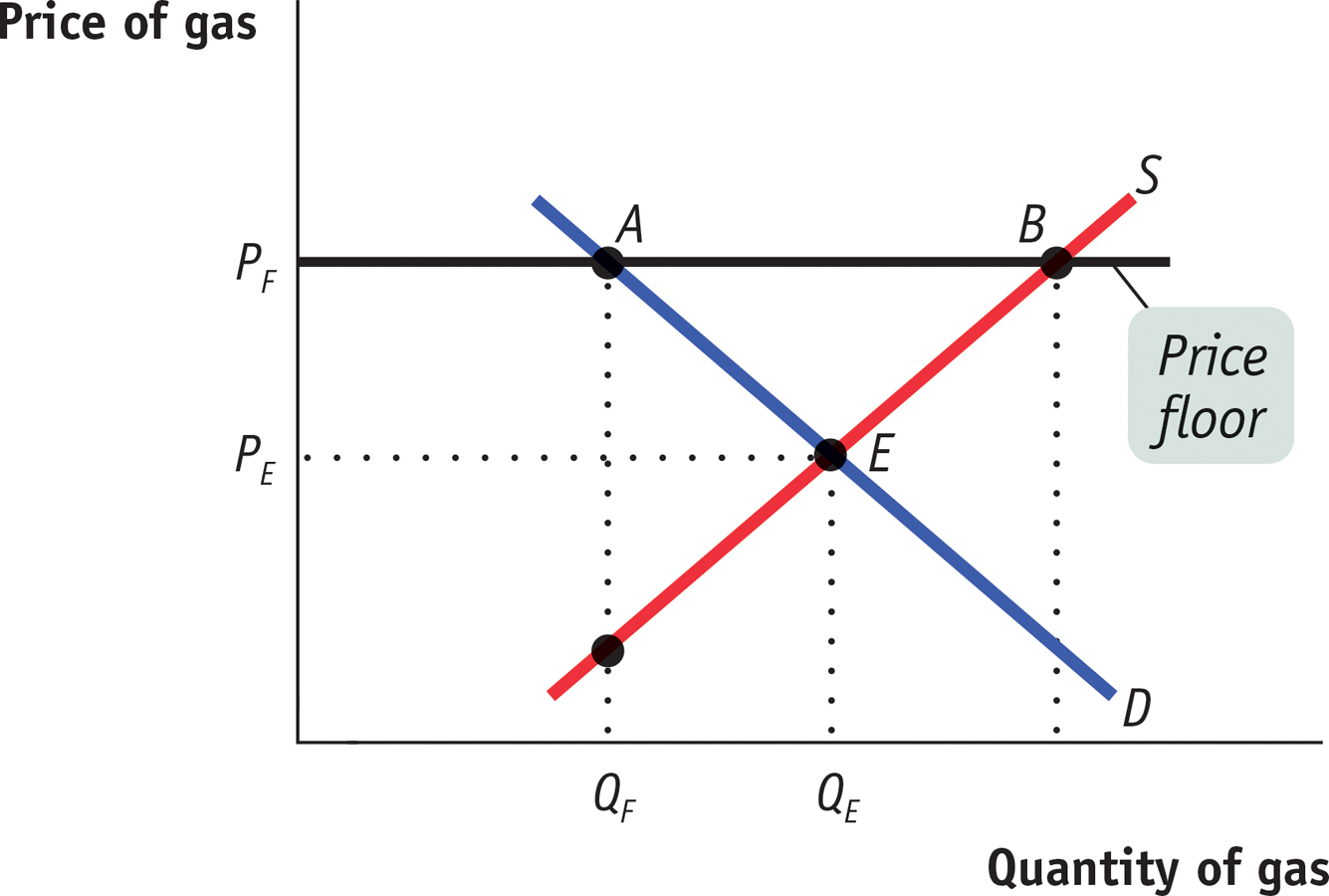So Why Are There Price Floors?
To sum up, a price floor creates various negative side effects:
A persistent surplus of the good
Inefficiency arising from the persistent surplus in the form of inefficiently low quantity (deadweight loss), inefficient allocation of sales among sellers, wasted resources, and an inefficiently high level of quality offered by suppliers
The temptation to engage in illegal activity, particularly bribery and corruption of government officials
So why do governments impose price floors when they have so many negative side effects? The reasons are similar to those for imposing price ceilings. Government officials often disregard warnings about the consequences of price floors either because they believe that the relevant market is poorly described by the supply and demand model or, more often, because they do not understand the model. Above all, just as price ceilings are often imposed because they benefit some influential buyers of a good, price floors are often imposed because they benefit some influential sellers.
ECONOMICS in Action: The Rise and Fall of the Unpaid Intern
The Rise and Fall of the Unpaid Intern
The best-
Internships are temporary work positions typically reserved for younger workers still in college or recent graduates. The sluggish U.S. economy of recent years has produced poor job prospects for workers 20 to 24 years old. The unemployment rate for this age group was almost 12% at the start of 2014. One result of this has been a rise in the availability of internships, which look increasingly appealing to enthusiastic young workers unable to find well-
Internships fall into two broad categories: paid interns, who are formally hired as temporary workers, and must be paid at least the minimum wage, and unpaid interns, who perform tasks but are not legally designated employees and aren’t covered by minimum wage laws. Because internships offer the promise of valuable work experience and credentials that can later prove very valuable, young workers are often willing to accept them at a low wage or even no wage. According to Robert Shindell, an executive at the consulting firm Intern Bridge, more than a million American students a year do internships; a fifth of those positions pay zero and provide no course credits.
Not surprisingly, some companies are tempted to use unpaid interns to perform work that in reality has little or no educational value but that directly benefits the company.

To guard against such practices, the Department of Labor (DOL), the federal agency that monitors compliance with minimum wage laws, issued several criteria in 2010 to help companies determine whether their unpaid internships are legally exempt from minimum wage requirements. Among them are: (1) Is the experience primarily for the benefit of the intern and not the employer? (2) Is the internship comparable to training offered by an educational environment? and (3) Is there no displacement of a regular employee by the intern? If the answer to such questions is yes, then the DOL considers the internship to be a form of education that is exempt from minimum wage laws. However, if the answer to any of the questions is no, then the DOL may determine that the unpaid internship violates minimum wage laws, in which case, the position must either be converted into a paid internship that pays at least the minimum wage or be eliminated.
In 2012 and 2013, a spate of lawsuits brought by former unpaid interns claiming they were cheated out of wages brought the matter to public attention. In 2013, the movie company Fox Searchlight Pictures was found guilty of breaking federal minimum wage laws for employing two interns at zero pay. A common thread in these complaints is that interns were assigned “grunt work” that had no educational value—
As a result, many lawyers who advise companies on labor laws have been advising companies to either pay their interns minimum wage or shut down their internships. While some have axed their programs altogether, others—
Quick Review
The most familiar price floor is the minimum wage. Price floors are also commonly imposed on agricultural goods.
A price floor above the equilibrium price benefits successful sellers but causes predictable adverse effects such as a persistent surplus, which leads to four kinds of inefficiencies: deadweight loss from inefficiently low quantity, inefficient allocation of sales among sellers, wasted resources, and inefficiently high quality.
Price floors encourage illegal activity, such as workers who work off the books, often leading to official corruption.
5-2
Question 5.4
The state legislature mandates a price floor for gasoline of PF per gallon. Assess the following statements and illustrate your answer using the figure provided.

Proponents of the law claim it will increase the income of gas station owners. Opponents claim it will hurt gas station owners because they will lose customers.
Proponents claim consumers will be better off because gas stations will provide better service. Opponents claim consumers will be generally worse off because they prefer to buy gas at cheaper prices.
Proponents claim that they are helping gas station owners without hurting anyone else. Opponents claim that consumers are hurt and will end up doing things like buying gas in a nearby state or on the black market.
Solutions appear at back of book.